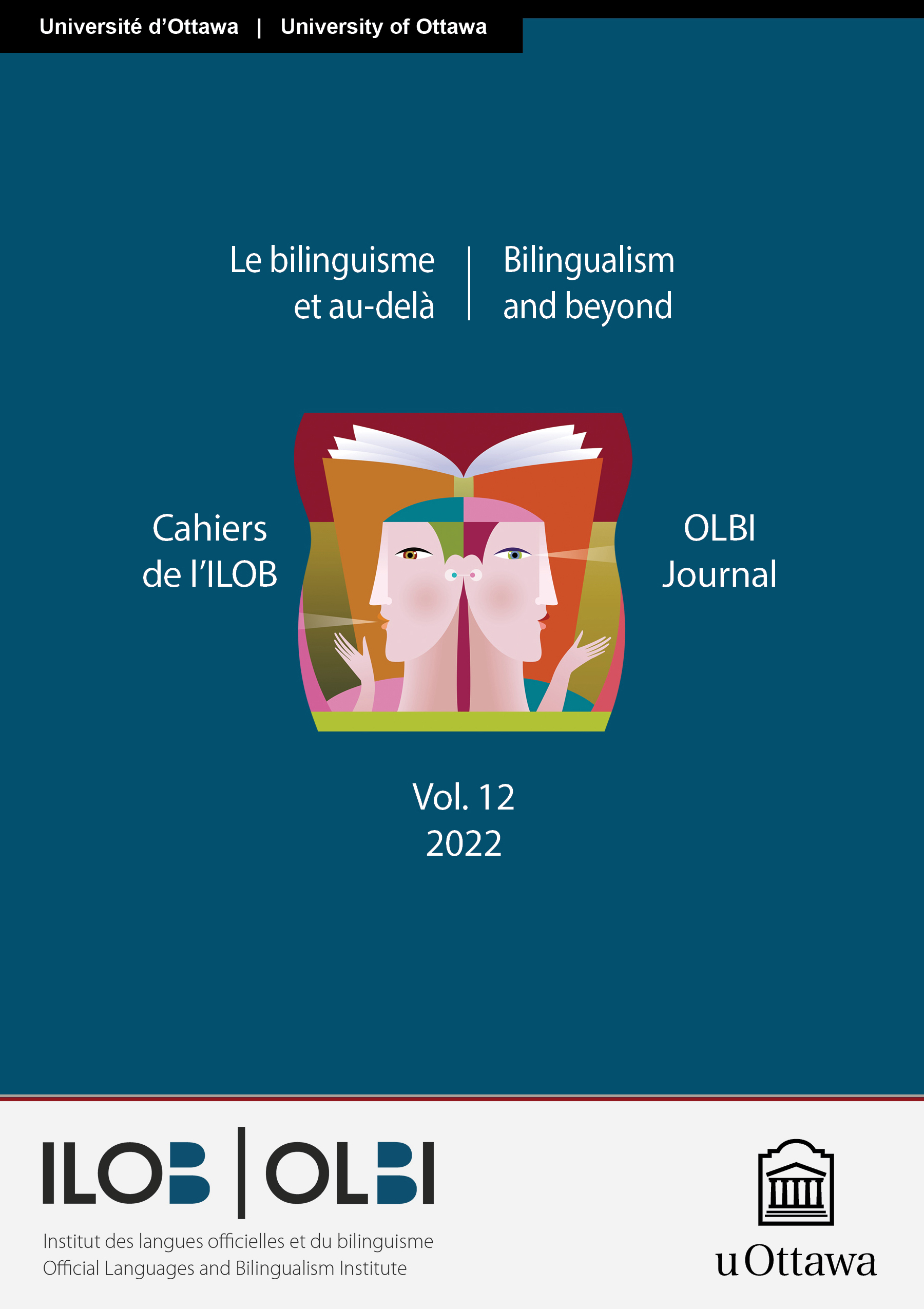Communication orale et évaluation formative pour l’apprentissage dans les centres de littératie en immersion française
DOI :
https://doi.org/10.18192/olbij.v12i1.5966Mots-clés :
immersion française, communication orale, évaluation formative, langue seconde, centres de littératieRésumé
Dans cette étude, de devis de recherche-développement, nous avons examiné la dimension formative de l’évaluation lors de la participation d’élèves de l’élémentaire à des tâches orales dans des centres de littératie en immersion française (IF). Le programme d’IF visant l’acquisition de la langue seconde, fournir aux élèves des occasions de produire de façon étendue est important. Nous avons observé la façon dont les enseignantes recueillaient des traces d’apprentissage auprès de leurs élèves, alors que ceux-ci travaillaient de façon autonome à des tâches orales. Les données ont été recueillies auprès des enseignantes (n = 5) d’IF et de leurs élèves. Ces données consistaient d’observations en classe, d’enregistrements vidéo, de preuves d’apprentissage et d’entrevues avec les enseignantes (n = 15). Les données ont révélé l’importance d’établir des résultats d’apprentissage précis, de recueillir des preuves d’apprentissage tangibles et de se servir de ces évidences d’apprentissage pour maximiser les apprentissages de l’oral dans les centres de littératie.
Téléchargements
Publié-e
Numéro
Rubrique
Licence
© Josée LeBouthillier, Renée Bourgoin 2022

Cette œuvre est sous licence Creative Commons Attribution 4.0 International.
Les auteurs qui publient avec Les Cahiers de l'ILOB acceptent les termes suivants:
- Les auteurs conservent le droit d'auteur et accordent à la revue le droit de première publication, l'ouvrage étant alors disponible simultanément, sous la licence Licence d’attribution Creative Commons permettant à d'autres de partager l'ouvrage tout en en reconnaissant la paternité et la publication initiale dans cette revue.
- Les auteurs peuvent conclure des ententes contractuelles additionnelles et séparées pour la diffusion non exclusive de la version imprimée de l'ouvrage par la revue (par ex., le dépôt institutionnel ou la publication dans un livre), accompagné d'une mention reconnaissant sa publication initiale dans cette revue.
- Les auteurs ne soumettront pas simultanément le même travail pour publication à plus d’une revue spécialisée à la fois.


